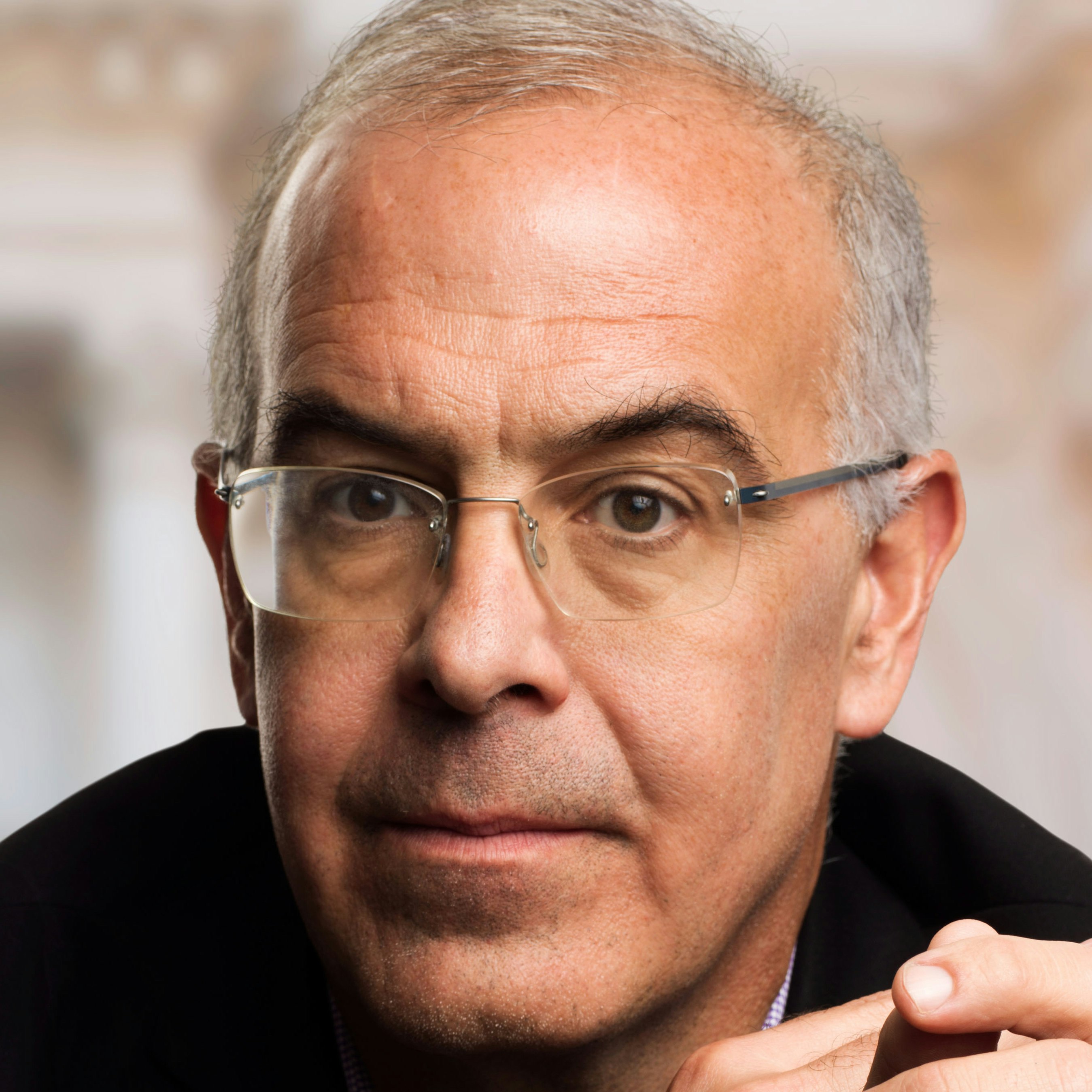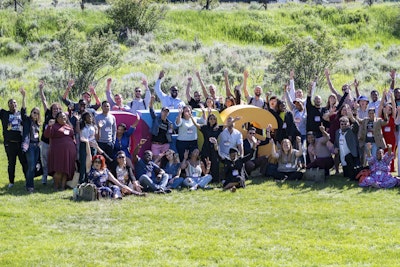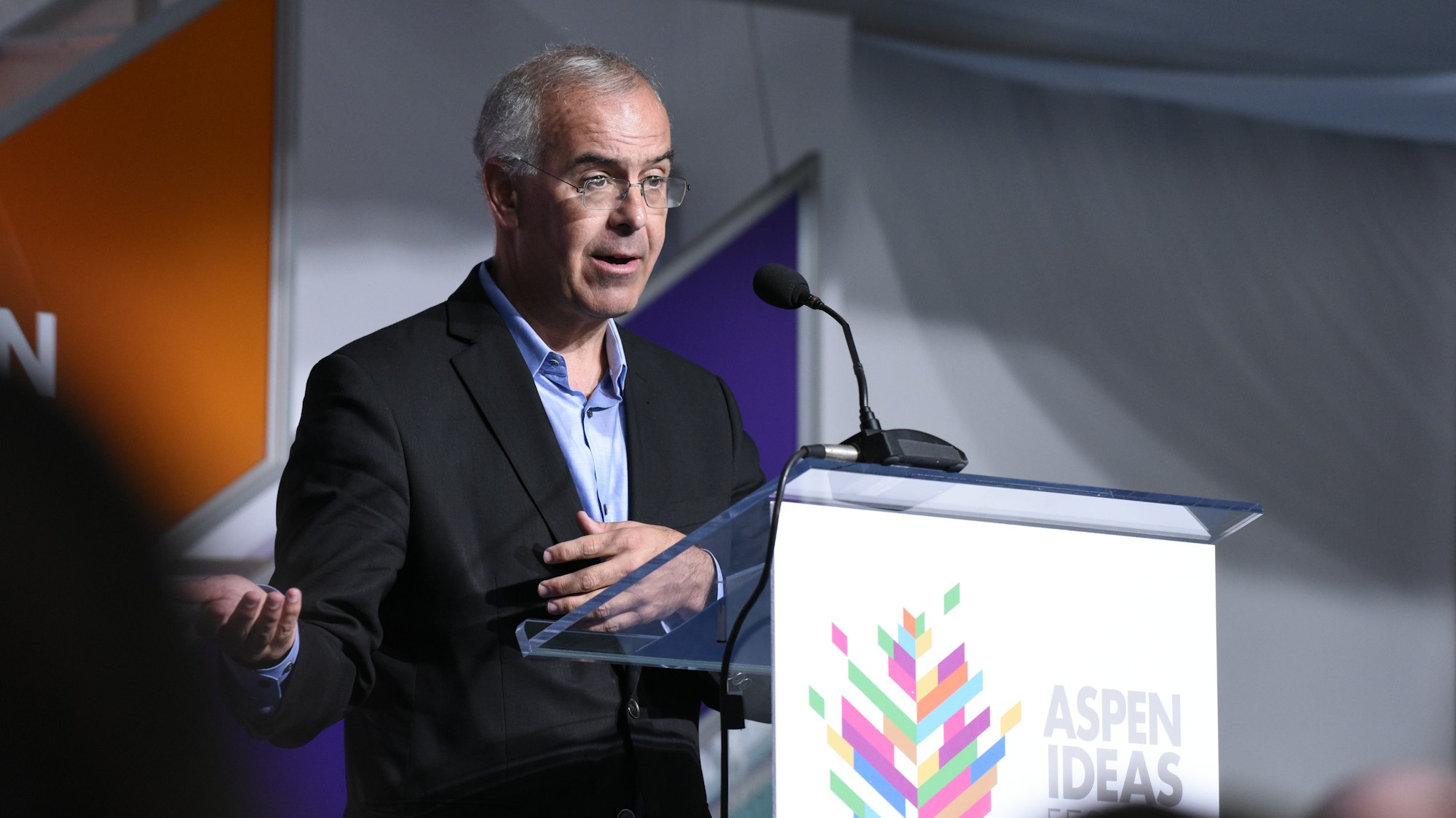
The Four Commitments: The Choices That Create Your Life
Setup
A successful life usually depends on making four major commitments: to a spouse or family, a faith or philosophy, a community, and a vocation. But how do we choose what we will commit to, and how do we execute those commitments? In later years, is it possible to launch a new booster stage with new or additional commitments? (Yes.) This will be another exploration of a life well lived.
Speakers
- 2016 Festival
The case for commitment in an era of evasiveness
The 21st century zeitgeist, according to New York Times columnist David Brooks, is not one that rewards commitments. Reasons for evasiveness may be manifold, but Brooks thinks the end result is the same: individuals and societies that are fragmented and listless. Without long-lasting commitments that weave through the fabric of your life, there’s nothing tying it all together. Whether shying away from big life decisions or ghosting a date, we are not inclined to commit to ourselves or others.
A definition for the times
2. How to make the leap of blind faith that commitments demand of you
Many of the big commitments we make in life, no matter how much planning or soul-searching goes into them, are still acts of blind faith. In the absence of cold logic to guide our decisions, David Brooks advocates for love and morality to be the foundation of our commitments:
-

David Brooks: The first thing love does is humbles us, it reminds us we're not even in control of ourselves. You can't control your own thinking when you're in love, when you look across the crowd you think you see your beloved sitting there. The second thing love does is it plows open hard ground. It opens up the crust of our lives that we've used to cover of ourselves, exposing soft flesh below. And it makes us more liable to suffer deep pain, but also deep joy. The third thing love does is it decenters the self. You realize your riches are not in yourself, they are in another person. And the final thing it does is it leads to a sort of fusion unity between two people.
A strong inner morality allows us to set aside what may seem like the logical choice and put a higher calling at the center of our decision-making. Morality decouples ourselves from our decisions, in a way, and can be a constant throughout decades of change.
What disciplines our commitments?
If love and morality compel our commitments, what maintains them over years and decades? What strengthens our commitments when love and morality butt heads with everything outside the mind? David Brooks has some suggestions:
Explore More
Technology


It doesn’t look like we’re going to be able to put the generative artificial intelligence genie back in the bottle. But we might still be able to prevent some potential damage...


Scientists could actually be close to being able to decode animal communication and figure out what animals are saying to each other. And more astonishingly, we might even fin...

Whether expressed through systems that are easy to navigate, devices that are friendly to their users, and spaces that are pleasing to the eye, thoughtful design can break dow...


Artificial intelligence is making world-changing advances every day. But these powerful tools can be used for malicious and nefarious purposes just as easily as they can be us...


A technological future where our brain waves could be monitored and our thoughts decoded and analyzed — sometimes against our will — is not as far away as we think. But our ex...

Setting audacious goals helps to redefine what is achievable in health, medicine, and science. As we deepen understanding of the human genome, unravel the mysteries of the bra...


Artificial intelligence is clearly going to change our lives in multiple ways. But it’s not yet obvious exactly how, and what the impacts will be. We can predict that certain...


When Sal Khan created Khan Academy, he was trying to scale up the successful experiences he’d had tutoring his cousins one-on-one in math. He saw how effective it could be for...

Everywhere you look, there’s a headline about the power of artificial intelligence and how it will impact our lives in ways we have not yet imagined. From advancing medicine t...

How do we sustain growth in a volatile and rapidly changing economy? What’s the best way to foster productivity and fulfillment at work? How will A.I. change the job market? C...


The automotive industry is going through a time of profound transformation, facing internal and external pressure to electrify America’s fleet of personal vehicles. General Mo...

Can technology bolster democracy? MIT’s Deb Roy thinks so.

At the 2023 Aspen Ideas Festival, we dug into some of the most important and fascinating issues of our time, from rebuilding trust in our institutions and the promise and peri...


Like all technology, artificial intelligence can be used for good, and it can be used for evil. What little federal regulation the United States has governing technology and t...

Like Photoshop, photography, or even pigment, A.I. represents new technology for creative expression that aims to close the gap between imagination and physicality. Alexander...

In their new book, co-authors and Stanford professors Rob Reich and Mehran Sahami argue that big tech’s obsession with optimization and efficiency has sacrificed fundamental h...

Acclaimed authors and experts Annie Murphy Paul, Sheena Iyengar, and Keith Sawyer explore the multifaceted nature of decision-making, choice, and creativity. Through their uni...

From satellite internet and autonomous taxis to the Star Trek computer and personal robots: technologies that once sounded like science fiction are becoming reality. Join Amaz...

The generative artificial intelligence genie is out of the bottle. When we look back 30 years from now, what will we be able to point to that we got right?

Renowned psychologists Lisa Damour, author of The Emotional Lives of Teenagers, and Laurence Steinberg, author of You and Your Adult Child, delve into the complex landscapes o...












